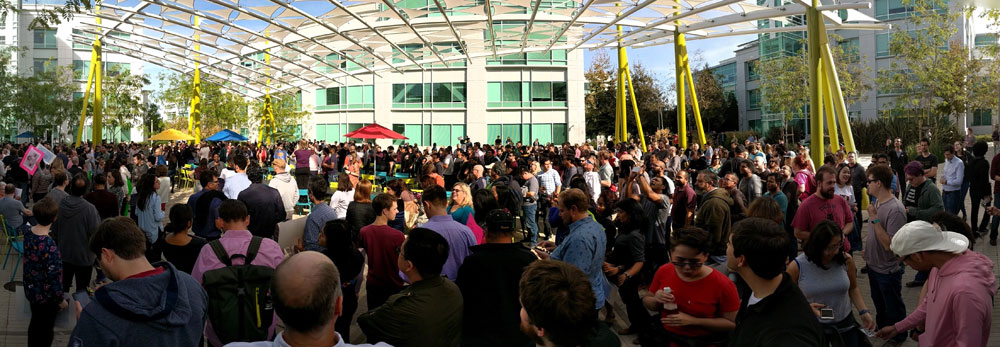
September 25, 2019; The Conversation
Over the past few years, we’ve seen a sharp rise in corporate activism. Companies increasingly opt to “take a stand” on social and political issues that once would have been considered taboo. Walmart, Dick’s Sporting Goods, and TOMS have all taken active measures in the face of countless mass shootings to limit ammunition sales and lobby Congress to enact stronger gun control measures. Last year, Nike made quick headlines by launching an advertising campaign featuring Colin Kaepernick, the former NFL quarterback who was fired for refusing to kneel during the national anthem in protest of police brutality toward people of color. We see new examples regularly of companies picking up a mic, pressuring suppliers, and engaging employees on social issues.
While some company leaders seem to be genuinely driven by morality and passion (Chobani’s Hamdi Ulukaya is a good example), often they are responding to employee and consumer pressures. A 2018 Edelman Trust barometer study found that 84 percent of those surveyed expect companies to inform conversations on policy debates, and 56 percent have “no respect for CEOs that remain silent on important issues.”
Law professor Elizabeth Tippett, however, warns us that these employee pressures might only work in a strong economy and pose risk for employees in a downturn. She writes:
Sign up for our free newsletters
Subscribe to NPQ's newsletters to have our top stories delivered directly to your inbox.
By signing up, you agree to our privacy policy and terms of use, and to receive messages from NPQ and our partners.
Companies have proved responsive to employee activism. Amazon let workers take vacation time to walk off the job and issued a carbon pledge. Google declined to renew a contract providing artificial intelligence to the military. Even Walmart discontinued some of its ammunition sales and is urging lawmakers to pass gun control legislation.
In a competitive labor market, it’s almost as if allowing employee protest has become a workplace perk of sorts, a special privilege companies selectively dispense for workers—software programmers in particular—who are hard to replace.”
It’s an important point, and she’s certainly correct that as unemployment rises, employers feel less pressure to respond to the demands of employees. Still, the same logic may not apply to consumer pressures. Citizens as consumers are increasingly showing their activism by purchasing from companies that are on the right side of the issues they care about—whether that’s immigration, gun control, or the treatment of their employees. The impact of recessions on consumer pressure is less clear-cut. On the one hand, recessions may make consumers more price-conscious (and thus less likely to engage in consumer activism). On the other, recessions make companies more desperate for earnings and therefore more sensitive to the consumer activism that does occur. So, while the extent to which companies are putting their economic might behind the issues that they care about might wane in a downturn, corporate activism appears unlikely to disappear.—Danielle Holly













